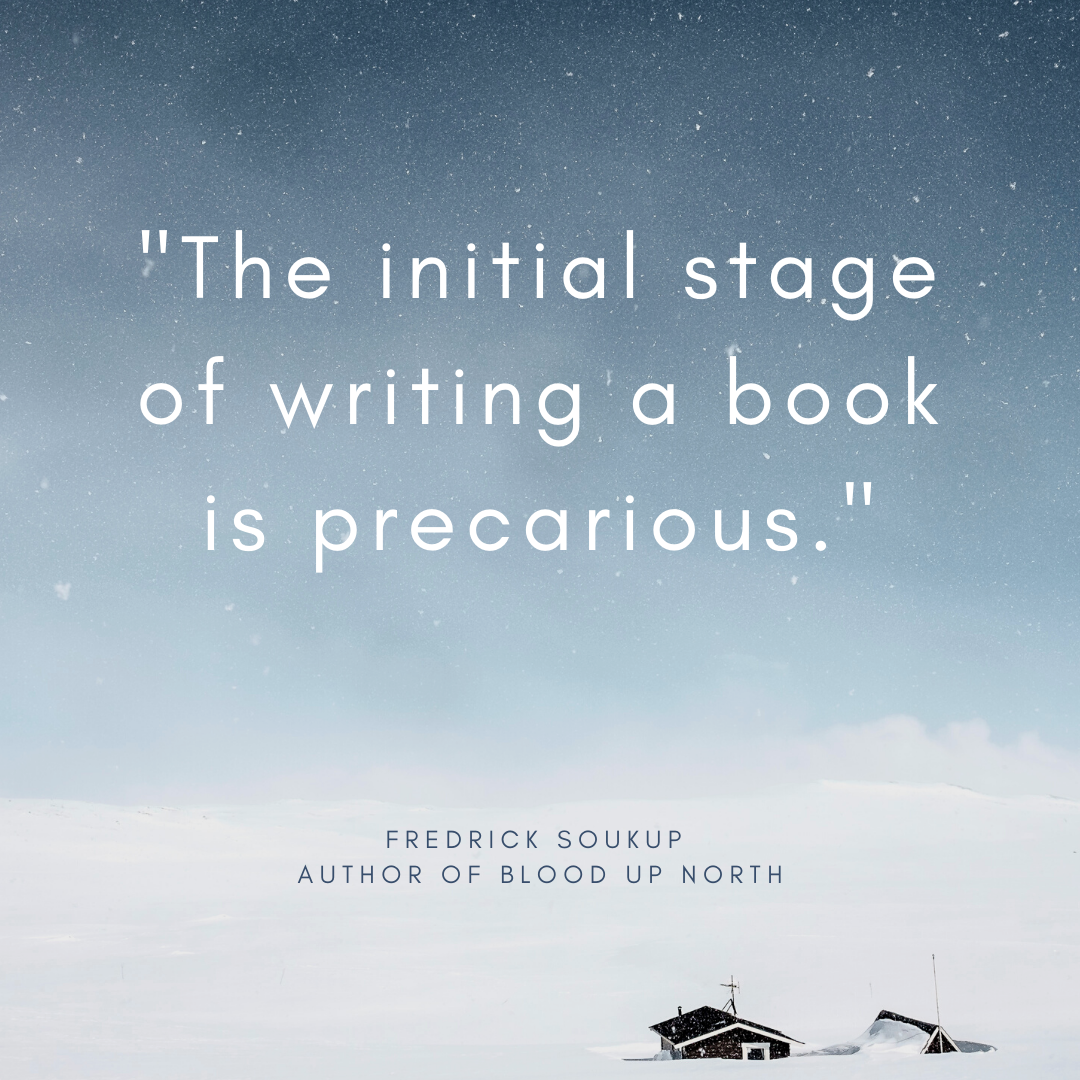In October of 2018 I received an email offering me my first book deal—something I’d dreamt about for a decade. But after rereading the email a dozen times, I was confused. Having, at that point in my career, received, give or take, a billion rejection letters, I thought, “Wow, that’s the strangest rejection letter I’ve ever received. It almost sounds like a yes.”
Needless to say, the road to publication is a long one. Now on the eve of the release of my second novel, Blood Up North (Vine Leaves Press), I’m aware I have much to learn about writing and publishing novels. Though, I’ve also learned much (I think). So at the risk of repeating suggestions you may have learned from more qualified instructors or compiled yourself, I’d like to impart the lessons I’ve learned. Fingers crossed, they can be of some service to you in your career.
Forget the butterfly.
At the beginning, a story isn’t a story. It’s a premise, a character, a situation, a setting, etc… A cocoon, at best. That’s fine. No, it’s better than fine—it’s a miracle! Someday that butterfly may land in your hands and spread its wings, and the two of you will marvel at its modest genesis. (A serviceable, if corny, metaphor: you see, the butterfly is a book!) But it’s important to remember—and I often have to remind myself of this—that the initial stage of writing a book is precarious. Writers tend to dream; that’s what makes them writers. But there’s a fine line between articulating in detail a path to that butterfly and merely falling in love with its ideal. Since nothing exists but what’s on the page, you may find yourself, in the latter case, exasperated when your repeated cracks at that opening chapter fail to capture all the glorious charisma of the literary classic you have in mind.
Forget the butterfly! It doesn’t exist and it never will. If it did, there would exist as many breathtakingly powerful novels as there have been breathtakingly powerful moments experienced by literate and ambitious individuals. What Austen had in mind when she first started Pride & Prejudice was probably just as brilliant as the finished product, but I sincerely doubt it was Pride & Prejudice.
Even she had to grind. Even she had doubts. Even she had to…
Rewrite (edit)
Or maybe she didn’t, I don’t know. Regardless, in my opinion, a draft is a draft is a draft. Writing one is super GD hard, and you should feel super GD proud of it. Keep in mind, however, that your work has most likely only just begun. For real. In my experience, the only thing more dismaying than looking back at an old draft and immediately noticing your mistakes—or having those mistakes pointed out to you by a peer reader to whom you sent your draft prematurely—is realizing that you’ve sent your project to agents and editors before it was ready. Maybe the ending is sloppy, the side characters are flat. Maybe the pacing in half a dozen chapters lags. Whatever it is, it’ll be difficult to spot in the days and weeks after you’ve finished that first run-through. Take time off (read other books, organize the miscellaneous drawer in your kitchen, rob a bank, whatever…), then get back to it.
While we’re on the subject of shame…
Embrace embarrassment
This story, regrettably, is true. Back in high school, I spent a summer emceeing lumberjack shows in northern Minnesota. In flannel, boots, and jeans, I pumped up the crowds (a hundred or so, mostly families), then provided commentary for two burly lumberjacks competing in axe-throwing, logrolling, handsawing, chainsawing, and pole-climbing. One day, the older lumberjack’s sore back prevented him from climbing the pole and the competitors tied 2-2. After huddling up, they informed me that the competition would be decided by one more toss of the axe. I then turned to the stands—again, mostly families—and, trusting in my quick-feet, said, “You folks are in for a real treat today. The lumberjacks are all knotted up, so it looks like we’re gonna have ourselves a good old-fashioned j*ck-off!”
I have never been more embarrassed. Or, I should say, I had never been more embarrassed. Little did I know that the day would arrive when I’d email an agent my latest masterpiece, mistakenly addressing my query to “Mr. Ann Smith” (I changed the name here, but you get the drift). Nor did my embarrassment abate when over the following months she and her mercurial cohort responded to my project with silence.
I urge you, as I urge myself: embrace embarrassment! Laugh it off, learn from it, let it harden you, explore your emotions and see if they can help you with the next story. Whatever works for you.
But no matter what…
Don’t stop ‘til you get enough (also, don’t ever get enough)
If you’re like me, a tad on the self-demanding side, please remember to give yourself credit for your achievements, however small: a kind review, the completion of another draft, even a nice rejection letter. For instance, did you see what I did there with my initials? Pretty clever.
Be kind to yourself. Disheartened writers write disheartening books about disheartening characters. If you aren’t careful, you may fall into the same vortex of despair in which I’ve spent much of the past twelve years. If you see me there, feel free to wave, but please do keep it down—I’m working.
Fredrick Soukup is the author of Bliss (Regal House Publishing, 2020) and Blood Up North (Vine Leaves Press, 2022)



